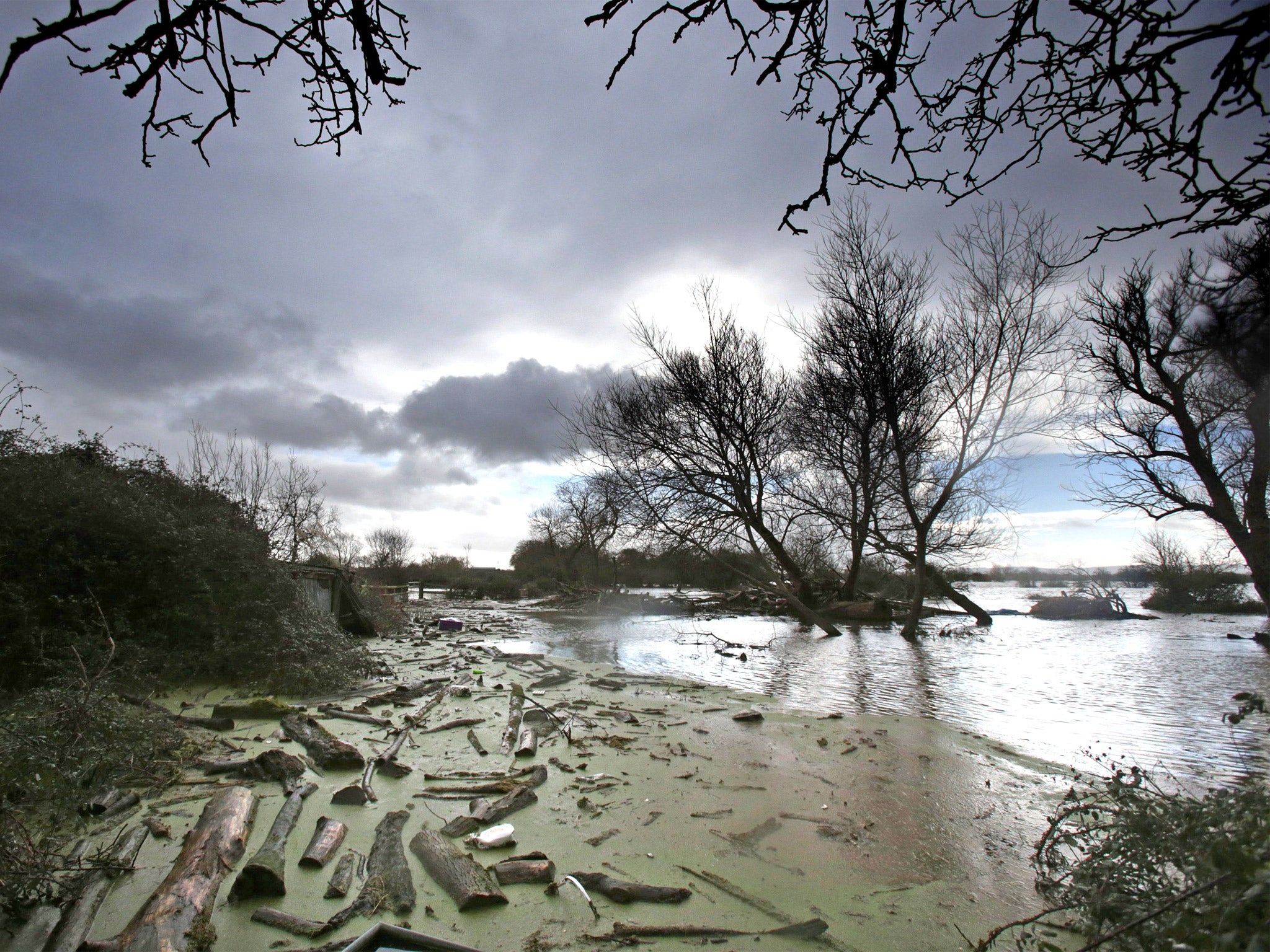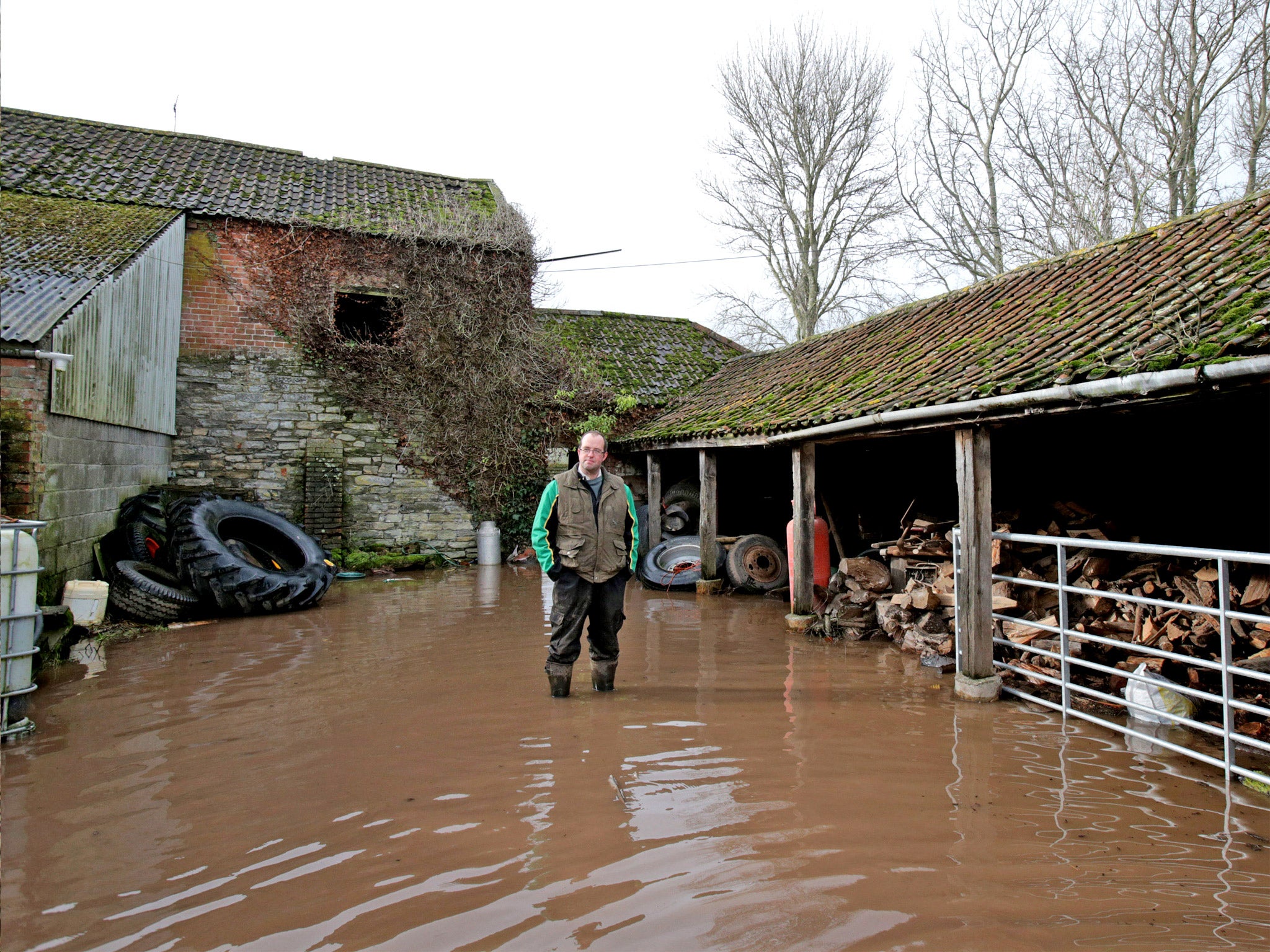Defra ignored Somerset flood warnings
Officials were told 12 months ago that rivers posed a serious risk but failed to take any action

Your support helps us to tell the story
From reproductive rights to climate change to Big Tech, The Independent is on the ground when the story is developing. Whether it's investigating the financials of Elon Musk's pro-Trump PAC or producing our latest documentary, 'The A Word', which shines a light on the American women fighting for reproductive rights, we know how important it is to parse out the facts from the messaging.
At such a critical moment in US history, we need reporters on the ground. Your donation allows us to keep sending journalists to speak to both sides of the story.
The Independent is trusted by Americans across the entire political spectrum. And unlike many other quality news outlets, we choose not to lock Americans out of our reporting and analysis with paywalls. We believe quality journalism should be available to everyone, paid for by those who can afford it.
Your support makes all the difference.Government officials were specifically warned a year ago that two rivers could cause severe flooding in the Somerset Moors – which have now been under water for weeks – unless they were properly dredged, The Independent has learnt.
The Environment Secretary, Owen Paterson, faced fierce criticism from politicians in Somerset after it emerged that the Government has slashed its budget for maintaining England's rivers by nearly half since taking office.
With parts of the county flooded for nearly a month and more heavy rain expected in south-west England and south Wales on Friday, residents were dismayed to discover that Mr Paterson's department had been told last year that the rivers Tone and Parrett risked inundating the surrounding area unless action was taken.
The amount of money the Department for the Environment, Food and Rural Affairs has allocated to maintain England's rivers fell from £108m in 2010-11 to about £92m in 2012-13, the year in which Mr Paterson took office.
The cuts have accelerated under Mr Paterson. The allocation fell to about £70m this year and is scheduled to tumble again, to £60m next year, bringing the total drop in funding under the Coalition to 45 per cent.
The decline in river maintenance investment was highlighted as a major source of concern at a parliamentary evidence session in January last year, which fed into a report by the Environment, Food and Rural Affairs committee of MPs that was passed on to Defra officials.
The report included a submission from the Association of Drainage Authorities, which warned: "We are deeply concerned at the decisions to reduce maintenance of flood defences...It is essential that adequate revenue funding is provided to enable the Environment Agency to conduct the necessary dredging."
"The Rivers Tone and Parrett are considered to be between a third and two-thirds of their capacity, exacerbating the extent and duration of flooding," the evidence continued.

Jean Venables, the association's chief executive, lamented the fact that the Government had not taken heed of its warning last year: "This has been especially damaging for Somerset."
She dismissed comments by the chairman of the Environment Agency Lord Chris Smith that dredging "would not have solved the problems we are facing". Ms Venables said: "This patch of river is flat and silty, meaning that it loses capacity quite quickly. After 20 years of neglect it needs a full dredge to get it back."
Anne McIntosh, the Conservative MP and chair of the Efra parliamentary committee, said: "The Environment Agency might say you can't rely on maintenance and dredging but you can't just not do any."
Maria Eagle, the shadow Environment Secretary, added: "Owen Paterson has asked for a report on the flooding in Somerset within six weeks, yet he was clearly warned a year ago that this was a major risk from his failure to prioritise essential works."
River maintenance involves measures to alleviate flooding by speeding up the flow of the river. These include deepening and widening the river, scooping out the mud and removing vegetation as well as building barriers and pumping stations.
Julian Taylor, a councillor for Eastover Ward in the Somerset town of Bridgwater, said: "I'm very disappointed that the Government hasn't acted on the advice it was given. The budget cuts are clearly part of the problem... The Government has taken a risk on the basis that this kind of weather comes along one year in 100 ... it gambled and lost."
Duncan McGinty, head of Sedgemoor District Council, said: "Our pleas for funding from the Environment Agency have fallen on deaf ears."
Defra is responsible for setting the budgets of its Environment Agency subsidiary, with the agency responsible for allocating that funding.
A Defra spokesman said: "Dredging and clearing channels in rivers are important parts of the Environment Agency's maintenance regime. The Environment Secretary has been to Somerset and asked senior members of the council to come together with government departments to develop an action plan to resolve the problem for the next 20 years."
Meanwhile, Mr Paterson, giving evidence to the Lords Economic Affairs Committee about fracking, said that the countryside should be opened up to the controversial mining technique. "I would like to see shale gas exploration all over rural parts of the UK, because I think it will bring wealth and prosperity and jobs," he said, while admitting, "There is a large problem with public opinion. Those who are opposed have made all the running."
Join our commenting forum
Join thought-provoking conversations, follow other Independent readers and see their replies
Comments